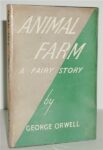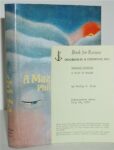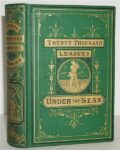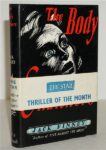Secker & Warburg, London, 1945
First State, First Edition, First Printing A near fine book with a beautiful scarce near fine first state dust jacket. The dust jacket has the requisite “An Early List for 1945” to the rear panel with the “Search light” motif to the reverse of the jacket. Crisp, clean book.
The book is in near fine condition with crisp, bright and clean green cloth boards with strong unfaded white titles to the spine. The boards have sharp corners, and no edgewear. The binding is tight and square. The end papers are clean with no owner names, no inscriptions, no bookplates and no bookstore stamps. The internal pages are clean, bright and flat with no age toning, no stains, no marks, no writing, no bent pages and no foxing. Beautiful clean book internally appearing as unread. Please see images.
The preferred first edition, first state dust jacket has benefited from very slight restoration by an expert paper conservator and as such presents in near fine condition. The Animal Farm jacket is known to be extremely fragile, and usually in pieces or missing altogether. This jacket has strong vibrant colors with no rips, no chips, no edgewear, no stains, no fading, no rubbing and no foxing. The jacket is NOT price clipped, and has a stated price of 6s. net. The reverse of the jacket has the “Search Light” motif in red as required for the first state of the first edition jacket (this motif can be either in red or blue). A lovely unclipped dust jacket! Please see detailed images.
A remarkable crisp, clean copy of this title with an original rare striking jacket in the scarce first state.
Animal Farm, known at the beginning and the end of the novel as the Manor Farm, symbolizes Russia and the Soviet Union under Communist Party rule. But more generally, Animal Farm stands for any human society, be it capitalist, socialist, fascist, or communist. “Napoleon”, the pig who attains complete power, convinces the other animals that they are better off without human rule, then Napoleon forms his own government rule and as their new leader forces the laborers to work harder for less food then the humans ever did. The entire novel is a metaphor for governmental systems especially the generic form of communism and socialism.
















